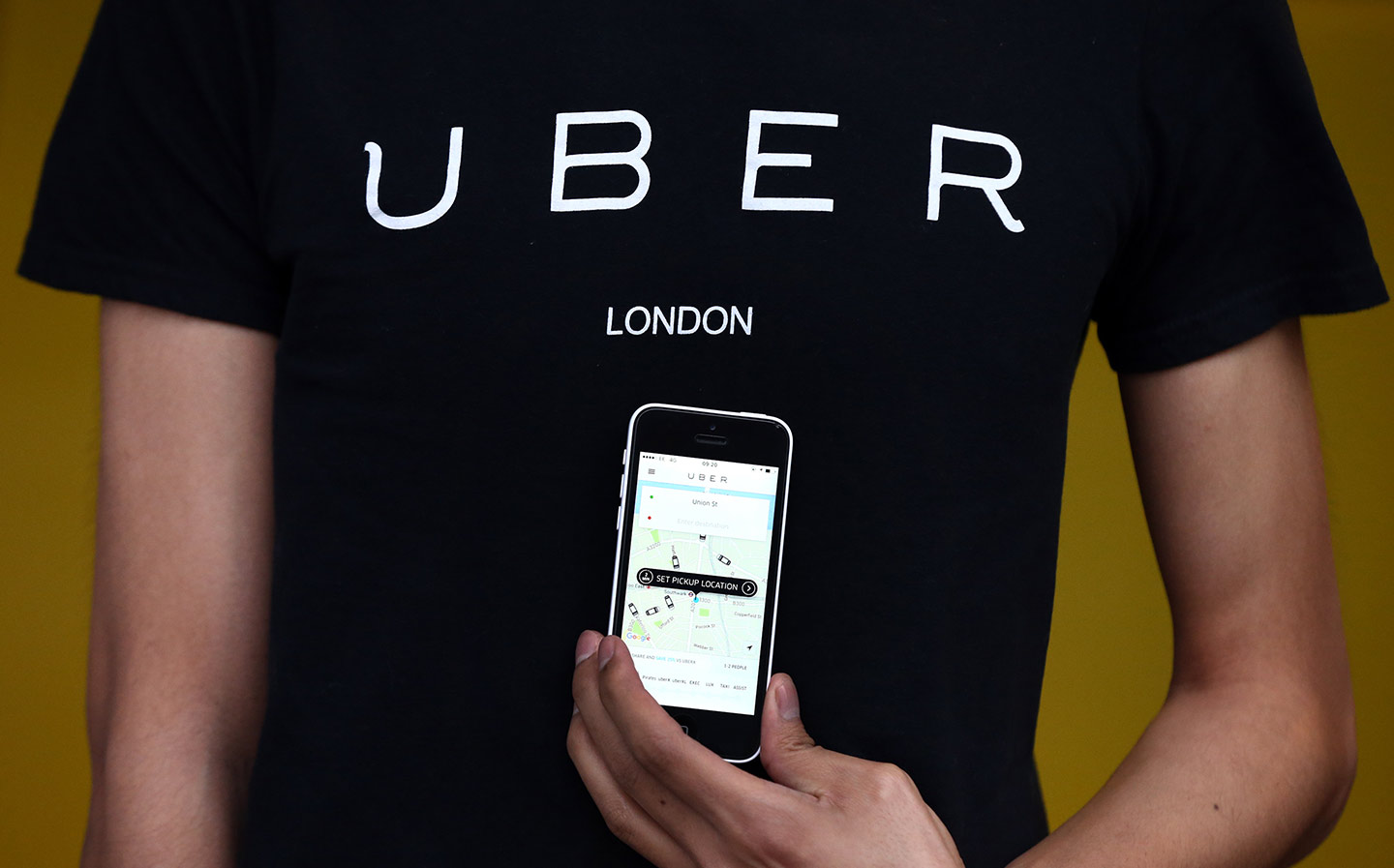Opinion: If Uber is worth what the investors claim, I’ll eat my brake pads
Beware the hype

Dominic Lawson
WITH A name like Uber, a business could not make the scale of its ambitions clearer. Deutschland über alles, and all that — although it is not German, but one of a clutch of Silicon Valley businesses whose mixture of audacity and nerdy brilliance have made them the most fashionable investments on the planet.
Uber — valued at almost $70bn (£55bn) by those investors funding its assault on the world’s urban transport markets — is suddenly looking a little less fashionable. A week ago it was greatly embarrassed by the allegations of a former employee, Susan Fowler, detailing a toxic management culture of sexual harassment and manic aggression.
And on Thursday Google’s parent company, Alphabet, filed a lawsuit against Uber, accusing it of the “calculated theft” of its self-driving technology. Alphabet, through its venture capital arm, is itself one of the largest investors in Uber. The digital revolution is devouring its own children.
Browse NEW or USED cars for sale on driving.co.uk
A sexual harassment accusation is especially damaging for a business that relies heavily on female passengers. Facing a wave of requests to delete accounts, the company has reacted with almost comically theatrical shock: “Everyone at Uber is deeply hurting after reading Susan Fowler’s blog post. What she describes is abhorrent and against everything Uber stands for and believes in.” Oh, really.
Uber believes in nothing other than trying to monopolise what is now called the “shared drive” market: the rest is just PR guff. And its machismo-fuelled chief executive, Travis Kalanick, has referred to the company as “Boober”, because of the way it has helped him attract women. So spare us the piety.
On the other hand, Uber does need to sound grown-up and respectable, as it will want to take the business public, so its founders and investors can realise the fabulous returns implied by that extraordinary $70bn valuation. This is where it all becomes mysterious — at least to me. Uber calls itself a technology stock. But it isn’t like its Silicon Valley neighbours Google and Facebook, which have created new media industries with astonishing levels of profitability via advertising.
In the past few months the Naked Capitalism website has run a remarkable series of pieces about Uber by a former transport regulator, Hubert Horan. They run in total to about 100 pages, so I can give only the merest whiff of his richly sceptical brew. Horan’s criticism is not just that investors have sunk billions into a venture long before any profits are in prospect: that might be described as normal for Silicon Valley — and long-term investment is the highest capitalist virtue.
No, his point is that its losses per dollar of turnover are completely unprecedented. By its fifth year of operations, Facebook already had profit margins of 25%; at the same stage of development, Uber’s annual billions of dollars of losses are even higher than its turnover, which is some achievement. It is only by burning through investors’ money at such a prodigious rate that Uber is in a position to charge customers little more than 40% of the running costs.
This might be described as predatory pricing: good news for consumers, but a proper cause for complaint by existing, unsubsidised competitors, such as black-cab drivers in London. In fact, Uber’s business model has recently been dented not by the irate possessors of “the knowledge”, but by a group of Uber drivers themselves, who asserted their right to holiday leave entitlement and other legally enforceable employee benefits.
“Like Google, Amazon and Facebook, Uber has so far been successful in gaming the tax system”
A tribunal rejected as “faintly ridiculous” Uber’s claim that it could not be classed as the drivers’ employer; and the judge described documents Uber had submitted to the court as containing “fictions, twisted language and even brand new terminology”.
Like Google, Amazon and Facebook, Uber has so far been successful in gaming the tax system. These companies’ main assets lie in intellectual copyrights, not plant and machinery, so they can in effect move their profit base to whichever tax jurisdiction seems most favourable. This, too, is a mortal threat to competitor businesses based in physical premises within the markets where they trade: small booksellers are about to be rendered even more uncompetitive by a sharp rise in business rates, whereas Amazon’s profitability will not be affected.
This, in fact, is a growing problem for the government. While 11 Downing Street welcomes Facebook and Google establishing their European headquarters in London, the rapid decline of bricks and mortar retailing — or Airbnb’s growing legion of self-employed home-owners taking market share from hotels that pay VAT — is inexorably eroding the tax base.
The chancellor, Philip Hammond, is concerned. As well he might be: the national deficit can be reduced only by a mixture of increasing government receipts and cuts in public expenditure (which is not popular). It doesn’t seem that Hammond will address this “fiscal leakage” in his budget next month, but on grounds of unfair competition alone it demands his attention.
You might say this is just self-interested whining on the part of an old hand from the traditional newspaper industry, an industry whose revenues have been pillaged by Facebook and Google, as those Californian businesses hoover up the global advertising market.
But I’m happy to acknowledge that they have created something quite new, in an almost visionary fashion; and since these firms don’t charge us, the end users of their technology, the public will take a generally benign view of the multibillionaire nerds.
But Uber is something else again. As Hubert Horan points out: “Uber has not created a totally new product or dramatically redefined a traditional market; it is not ‘disrupting’ incumbent operators with a totally new way of doing business but is driving passengers from A to B in cars, just like traditional urban car service operators always have.”
Uber’s colossal valuation by investors can only be based on the idea that it will become the Amazon of the car-hire business. But this has always been a marginally profitable form of enterprise, and since those rides are not becoming cheaper (in actual cost to the provider), it will continue to be monumental investor subsidies keeping this particular show on the road.
Browse NEW or USED cars for sale on driving.co.uk
Perhaps those start-up investors will be able to persuade the financial institutions — the people running your and my pension funds — to give them the return they dreamt of, come a stock market flotation. Up first is Snapchat, whose recent filing with the US Securities and Exchange Commission was described by the FT as “for traditionally minded investors . . . the prospectus from hell. Last year the company recorded a net loss of $515m . . . on revenue of $404m. The filing states that Snap expects ‘to incur operating losses in future and may never achieve or maintain profitability.’”
Well, caveat emptor. The dotcom crash of 2000 showed the South Sea Bubble-like nature of the market’s obsession with hi-tech stocks. There were survivors, some even becoming profitable, but the loss of value was astounding.
It is, obviously, the right of the private investors in Uber to waste their billions. But please let’s not fall for their redefinition of minicab hire as a triumph of technological progress.
This article first appeared in The Sunday Times





